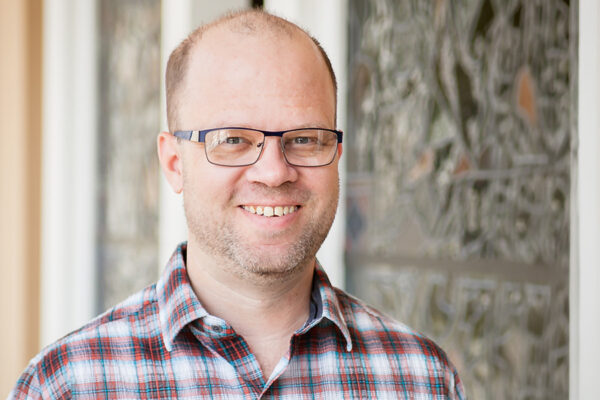Holy fear

Maybe you’ve heard before that the most repeated command in the Bible is “Do not fear.” By some counts, those words are spoken as many as 365 times—enough to hear it once every day of the year. Everyone from God to Moses to the psalmists to choirs of angels remind us: “Fear not!”
They are well-meaning sentiments, I’m sure. If given the choice to be afraid or not, I’m certain all of us would rather not be scared. But it seems like telling someone not to be afraid is a little bit like saying to another, “Calm down.” To my knowledge, never has anyone ever calmed down simply by being told to do so. It’s not exactly the most helpful of phrases.
I’m fairly sure the same is true with the words, “Do not be afraid.” The reality is there’s no shortage of things to cause us fear, worry, or general distress. At any given time, we hold any number of concerns for the future, personal uncertainties, societal upheavals, or broad apprehensions about the world around us. There’s often good reason to be scared or worried, and to tell someone otherwise seems impractical or even downright patronizing.
The more I think about the countless Biblical commands not to be afraid, the more I’m convinced that scripture isn’t telling us fear is an unreasonable response or that our worry is unwarranted. Instead, so many times when both personal & communal fears are addressed in the Bible, it’s accompanied by promises of reassurance, a call to action, or words of encouragement and hope.
In other words, while fear is a natural and expected reaction, our faith tells us it doesn’t have to the prevailing emotion. When the disciples were scared. When prophets were fearful of the political climate and unsure of how to move forward. When Mary and the women at the empty tomb were in utter shock at what they’d witnessed. Each and every time two things happened: God saw their fear and moved close enough for them to hear those words “Do not be afraid.” And then God invited them to move forward with action.
In every impossible situation, God makes it clear that fear won’t win. It is, in fact, possible to grieve what was lost and build something better. As overwhelming as it might seem, it’s feasible to name injustice and work for more peace. It’s conceivable to turn fear into faith and despair into hope. We just start simply—by putting one foot in front of the other.
So, friends, maybe you need to hear these words once more today: Do not be afraid.
Listen to that holy fear in your heart. Acknowledge it. And then remember that God promises you won’t face such worries alone. Know that you’re part of a long line of children of God who have managed to mix fear with faith and accomplish great things. Like so many before us, we’ll name what scares us most… and then we’ll get to work.





Michelle Evans
Thank-you. I needed to be reminded that although I am afraid, I am not alone
Don Garrison
From my earliest learning days, the passage in Proverbs has stirred me. ” The fear of God is the beginning of wisdom “. With that wisdom from the fear of God to guide our lives , it is much easier to follow the other 365 commands and not be afraid.
Anne Budde
“It is, in fact, possible to grieve what was lost and build something better.” Thank you Katie for the recognition that AND is an important concept in moving forward through difficult times.
Audrey Keeney
That for these encouraging words. I continue to need to be reminded of God’s promise that He is with us always and also, that God will be with us as we do our part to help in these troubled times.